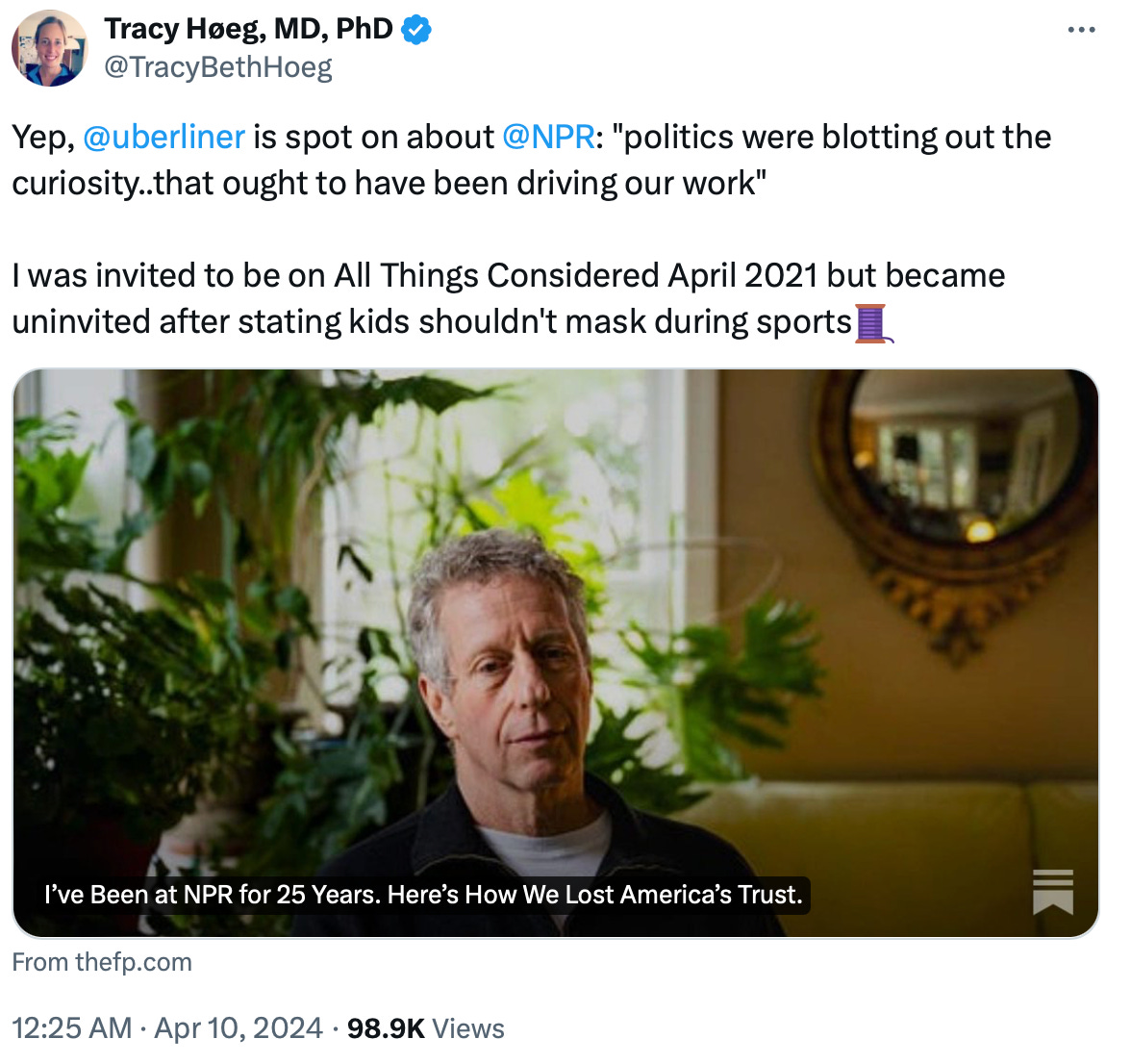National Public Radio (NPR) made the news last week for inaccurate reporting, polarization, and irrelevance.
Uri Berliner, who has worked for NPR for 25 years, reported that his organization has lost the public trust. He specifically references Russiagate, COVID, and the Hunter Biden laptop as three critical stories NPR got wrong, but still refuses to admit it. These three topics are the exact same ones that Honest Media cited as catalyzing the collapse of the mainstream media in our recent series.
Journalist Matt Taibbi addressed Berliner’s reporting in-depth on his podcast America This Week. On the show, the report was broken down and analyzed, including NPR’s response to Berliner.
Dr. Tracy Høeg jumped into this conversation on X, agreeing with Berliner. She added that she was scheduled to be on NPR herself during the pandemic, but her segment was canceled once they found out that she did not support blanket mask mandates. Høeg said in the same thread it “felt like censorship.”

In addition, Sayer Ji just reported that NPR’s coverage of the “Disinformation Dozen” has been refuted by data from Meta/Facebook. The “Disinformation Dozen" was compiled by a British Group called the Center for Countering Digital Hate (CCDH) and identified twelve online accounts that they claimed were “anti-vax.” CCDH requested that social media companies censor and deplatform these accounts, which included Robert F. Kennedy Jr.
It turns out that the data sourced for that reporting from the CCDH was incorrect, according to Sayer Ji and Meta. Nevertheless, NPR has not retracted, nor apologized for, its reporting on this topic.
On Tuesday, April 16 – one week after Berliner’s article outlining NPR’s issues – he was suspended from the organization. Although it is hardly unprecedented for an organization to stop working with someone who has spoken publicly about internal issues, this response suggests that NPR is doubling down instead of trying to look inwards at what has gone wrong.





Back in the days of my ill spent youth, the Madison WI NPR station aired "The Goon Show" + "The Dr. Demento Radio Hour". And the news & editorial content was a bit less regimented, perhaps? Was harder to tell in the 1970s Midwest.